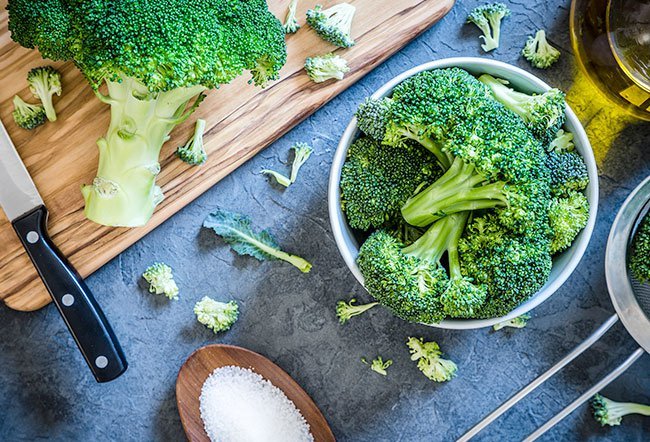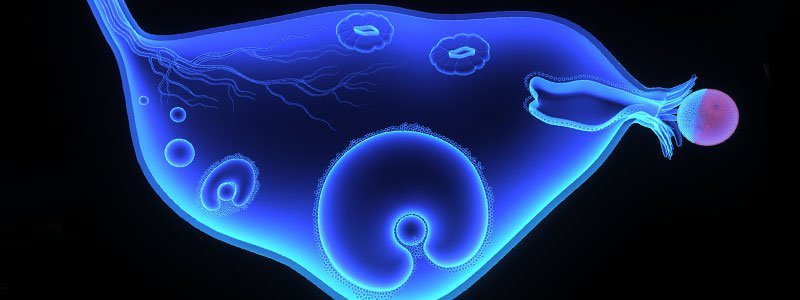
Certain dietary habits, such as a plant-based diet, can lower your risk of developing fibroids and manage symptoms.
Uterine myomas or fibroids are the most frequent benign female reproductive organ tumors, causing severe morbidity and lowering the quality of life. Certain dietary habits can lower the risk of fibroids and may even help with your symptoms if you already have them.
- Some studies have reported fibroids to be responsive to hormones, notably estrogen.
- Some symptoms may be alleviated by making lifestyle changes that alter hormone production.
While medical attention is necessary to know the best approach for managing fibroids, diet and exercise may be the two most important things you can do at home to manage uterine fibroids.
Estrogen affects fibroids, and fat cells generate estrogen. Getting rid of excess body fat may help alleviate discomfort.
While no specific research on diet or foods that can wither fibroids have been conducted, there is some evidence that women who follow a plant-based dietary regimen have better fibroid symptoms. Patients who incorporate a plant-based diet and include fiber in their diet along with exercise may have lower chances to suffer from symptoms of fibroid tumors, but one should remember that there are no proven natural ways to get rid of fibroids.
Are there any dietary guidelines for patients suffering with fibroid tumors?
There is no specific diet for fibroid tumors; what works for one patient may not work for another. It is usually advised to keep a food diary and to avoid items that may induce severe symptoms. However, a few studies have demonstrated that the following measures may assist patients to prevent fibroid growth.
- Limit foods containing high glucose and other simple carbs
- According to research, people with fibroid tumors should limit their intake of meals with high carbs. These foods have been demonstrated in research to potentially encourage tumor growth. Examples include:
- Instant white rice
- White bread
- Rice cakes
- French fries
- Doughnuts
- Scones
- According to research, people with fibroid tumors should limit their intake of meals with high carbs. These foods have been demonstrated in research to potentially encourage tumor growth. Examples include:
- Increase consumption of nutritious and hormone-balancing foods
- Reduce your consumption of saturated fats and increase your intake of high-fiber meals. Studies have reported that a diet that has calcium D-glucarate eliminates excess estrogen from the body. Examples include:
- Cherries
- Oranges
- Apples
- Broccoli
- Cabbage
- Reduce your consumption of saturated fats and increase your intake of high-fiber meals. Studies have reported that a diet that has calcium D-glucarate eliminates excess estrogen from the body. Examples include:
- Increase consumption of raw foods
- Eat plenty of fresh veggies, fruits, nuts, and seeds.
- This increases your dietary fiber, helps manage gut health, and encourages weight loss, which may help with your symptoms.
- Eliminate food allergens
- A food allergy occurs when the body’s immune system reacts adversely to anything a person eats or drinks. According to experts, eight items account for 90 percent of food allergies, which may sometimes be a risk factor for fibroid tumors. They are as follows:
- Cow’s milk
- Eggs
- Peanuts
- Fish
- Shellfish
- Tree nuts (such as cashews or walnuts)
- Wheat
- Soy
- A food allergy occurs when the body’s immune system reacts adversely to anything a person eats or drinks. According to experts, eight items account for 90 percent of food allergies, which may sometimes be a risk factor for fibroid tumors. They are as follows:
- Optimize your digestion
- Consume pesticide-free fruits and vegetables.
- Fresh, unprocessed fruits and vegetables include nutrients that assist replenish the gut’s natural digestive juices and promote digestion.
- Enhance your immune system
- Your first line of defense should be to live a healthy lifestyle. Following basic good-health principles is the single most important thing you can do to maintain your immune system robust and healthy. When you shield your body from environmental factors and supplement it with healthy-living tactics like these, every aspect of your body, including your immune system, performs better.
- Enhance your immune system by the following means:
- Quit smoking
- Eat a diet high in fruits, vegetables, and whole grains and low in saturated fat
- Exercise regularly
- Maintain a healthy weight
- Control your blood pressure
- Drink alcohol in moderation or not at all
- Get adequate sleep
- Drink enough water
- Manage your stressors
- Stress has been connected to a variety of health problems. Major life events that induce stress, according to doctors, may be linked to several fibroid occurrences in women.
- The adrenal glands release a hormone called cortisol in response to stress. This hormone has been found to promote the growth of fatty tissues.
- Because an increase in fatty tissue is associated with fibroids, reducing stress will reduce the amount of fatty tissue generated.
- Meditation and yoga can also help relieve stress, especially if practiced regularly.
- Other activities, such as walking and running, can help lower some types of stress, and counseling may be beneficial for some people.

QUESTION
What are uterine fibroids? See Answer
What are dietary risk factors for fibroids?
Many foods and dietary practices have been linked to an increased risk of myoma development. Low intakes of fruits, vegetables, and vitamin D, are among these reasons.
Despite the current evidence on the impact of certain foods on the development of fibroids, further study is required to understand all of the dietary risk factors that contribute to myoma growth and how these risk factors influence myoma pathogenesis.
Can fibroid tumors dissolve on its own?
As you approach menopause, most fibroids cease growing or even shrink. Your doctor may advise you to practice “watchful waiting.” With this strategy, your healthcare practitioner closely evaluates your symptoms to ensure that there are no substantial changes. They may examine the fibroids to ensure that they are not growing.
- Fibroids are living tissues that require oxygen and nutrients to survive and grow, and they are provided by blood vessels in and around the uterus.
- When fibroids grow too large, the blood arteries that feed the fibroids are no longer able to offer adequate nutrition to fulfill the fibroid’s demands.
- When this happens, the fibroid’s cells begin to die, a process known as degeneration.
- There is also a possibility that if the fibroid’s blood supply is restored, it will begin to grow and eventually degenerate again.
Ibuprofen or heating pads can be used to alleviate the pain associated with degenerating fibroids. You may require treatment if your fibroids are large or are causing significant symptoms. Treatment usually may be determined by your age and whether you intend to become pregnant in the future.
Latest Women’s Health News
Daily Health News
Trending on MedicineNet
Medically Reviewed on 5/3/2022
References
Uterine Fibroids: Dos and Don’ts: https://www.webmd.com/women/uterine-fibroids/uterine-fibroids-dos-and-donts
Uterine Fibroids and Diet: https://www.ncbi.nlm.nih.gov/pmc/articles/PMC7908561/
Uterine Fibroids: https://nutritionguide.pcrm.org/nutritionguide/view/Nutrition_Guide_for_Clinicians/1342088/all/Uterine_Fibroids